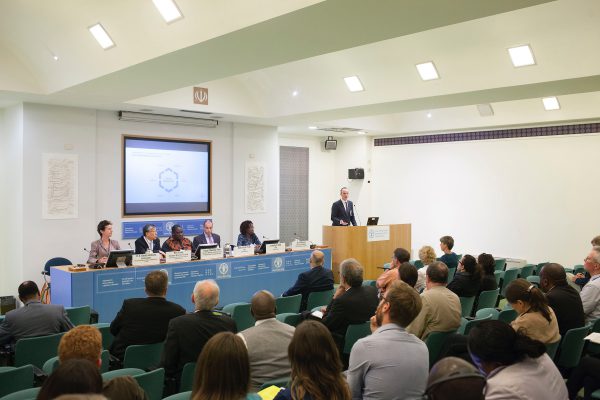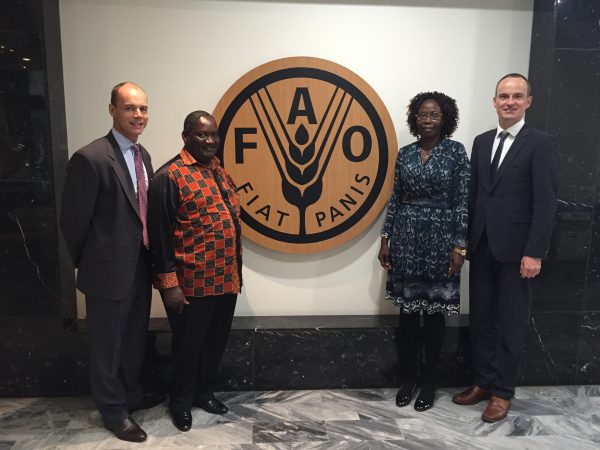The seed industry is reaching out to smallholder farmers, although much more can be done by companies and governments alike to ensure that smallholder farmers have access to quality seeds of improved varieties.
This and other findings of the Access to Seeds Index 2016 were presented on 3 June 2016 at FAO, during its 154th Council meeting. The event was jointly hosted by the Permanent Representation of the Kingdom of the Netherlands to the UN-organizations for Food and Agriculture in Rome and the Access to Seeds Foundation.
Ido Verhagen, Executive Director, presented the Index and its main findings to an audience of country representatives, and employees from Rome based organizations WFP, IFAD, Bioversity International, the World Farmers Organization, and FAO itself. The presentation was followed by remarks from panelists Bert van der Feltz (CEO of East-West Seed), Josephine Okot (CEO of Victoria Seed), Essau Mwendo Phiri (Executive Member of the Malawi Forum for Agriculture Advisory Services) and Ren Wang (Assistant Director General Agriculture and Consumer Protection Department at FAO). Gerda Verburg, Permanent Representative of the Kingdom of the Netherlands to the UN agencies in Rome and moderator of the event, then gave the floor to the audience for an interactive discussion with the panel.
Bert van der Feltz provided insights of East-West Seed’s operations in Myanmar and the realities of working with smallholder farmers who are strongly dependent on rainfall and uncertain markets. Josephine Okot introduced Victoria Seed, a seed company she started 12 years ago in Uganda, and the various difficulties she regularly runs into as a result of a weak policy environment. Subsequently, Essau Mwendo Phiri emphasized that smallholders should be seen as entrepreneurs, in need of inspiration and technologies instead of charity. The seed industry should invest more in developing inclusive business models, also focusing on this customer segment.
Ren Wang acknowledged that engagement of the private sector is key in realizing the international development agenda, as reflected in the Sustainable Development Goals (SDG’s), whereby the Access to Seeds Index is an embodiment of this aim. He also noted the strong need for the Index to link up with governments and policy makers, keeping them informed on developments in the sector and specific needs and bottlenecks in providing access. He thanked the Access to Seeds Index for placing the relevance of access to seeds for the global food security agenda at par with the relevance of access to medicine for the global health agenda.
The interactive discussion between the panel and audience that followed focused on the possible consequences of the consolidation in the seed industry, the essential role of governments in providing an enabling environment for the seed sector and FAO’s potential role to support its member countries in this, as well as next steps toward the development of a next Access to Seeds Index, to be launched in 2018.
Ido Verhagen’s presentation can be found here





